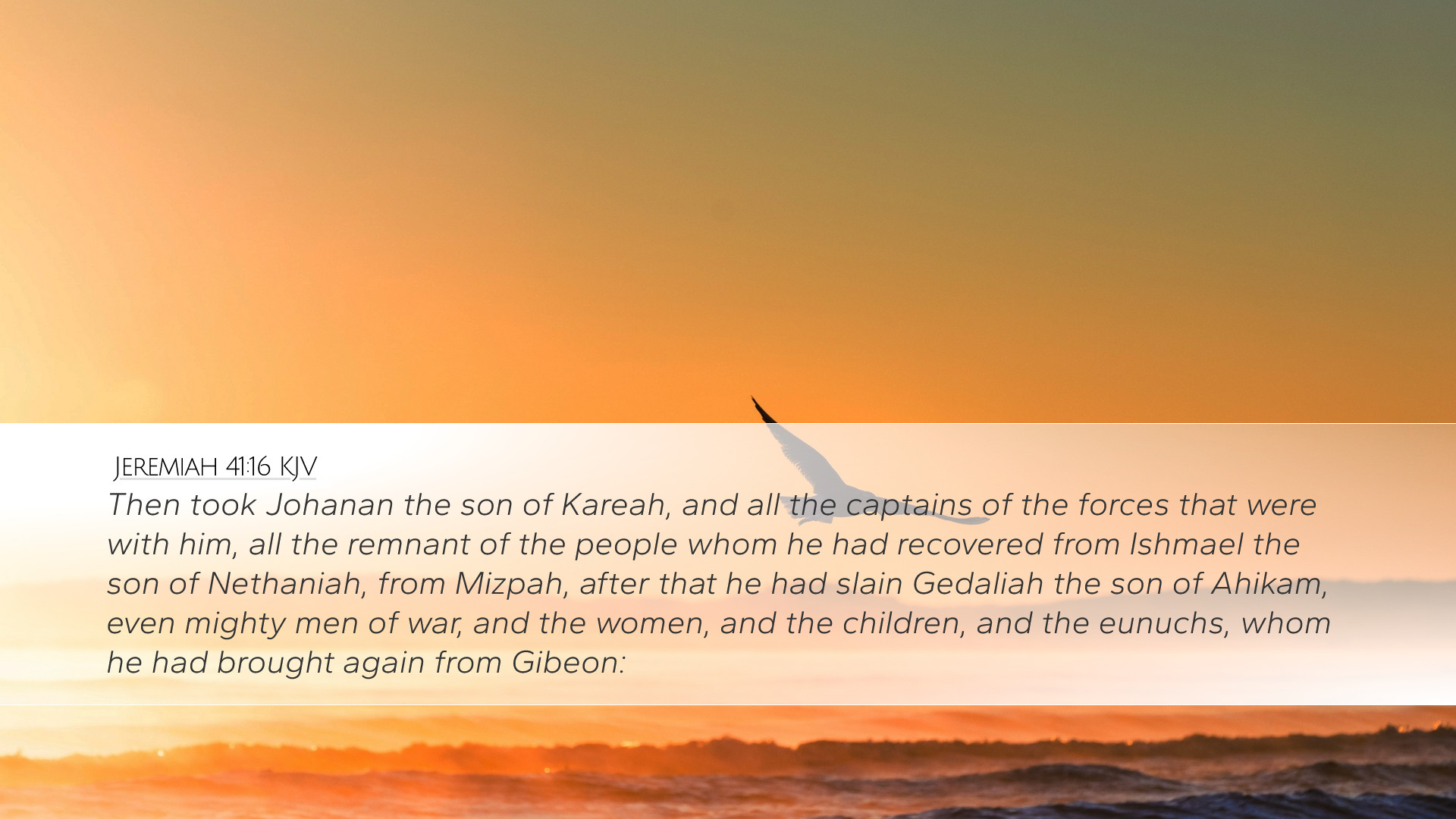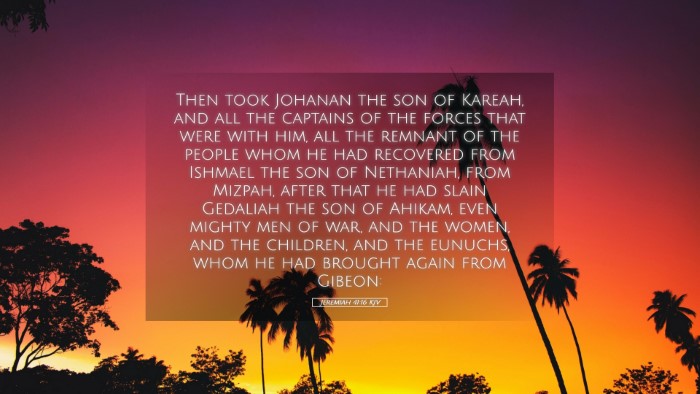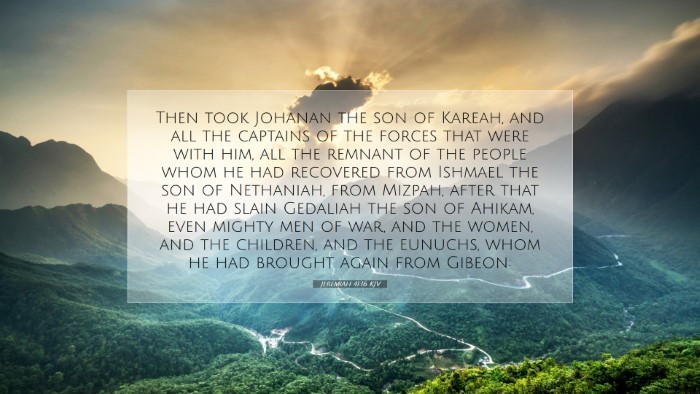Commentary on Jeremiah 41:16
Jeremiah 41:16 states: "Then took Jeremiah the son of Hananah, and Johanan the son of Kareah, and all the captains of the forces that were in the fields, and all the people that were not carried away captive, and they came to Gedaliah the son of Ahikam to Mizpah, and said unto him,"
Introduction
The context of Jeremiah 41:16 is crucial for understanding its significance. Following the fall of Jerusalem and the Babylonian exile, there were remnants of the Jewish people who sought to regroup and find leadership. This passage highlights the emergence of Gedaliah as a leader during a tumultuous time. He was appointed by the Babylonians to govern the remaining population in Judah, indicating an attempt at stability in the region.
Insights from Public Domain Commentaries
Matthew Henry's Commentary
Leadership during Chaos: Henry emphasizes the role of Gedaliah amid the chaos following Jerusalem's fall. His position as governor was vital for those who remained. Jeremiah's presence alongside Johanan signifies the importance of unity. Henry posits that they sought to support Gedaliah both politically and spiritually, indicating a communal desire for stability amidst fear and uncertainty.
Trust in God's Plan: According to Henry, this passage reflects a deeper theological theme: despite the surrounding calamity, there remains a provision and promise from God. The cooperation between various leaders displays a collective reliance on divine guidance for their future. This underscores how believers are called to align with God's purposes even in distressing times.
Albert Barnes' Notes on the Bible
Gathering of the Remnant: Barnes notes that this scripture captures the reunification of the remnant—those who were left behind after the Babylonian exile. The gathering of these people to Gedaliah illustrates the human instinct to seek organization and leadership after turmoil. Gedaliah's leadership was intended to bolster morale and guide the people back to a semblance of normalcy.
Interpersonal Relationships: Barnes elaborates on the dynamic between Johanan and Gedaliah. This is not merely a political alliance; it reflects a personal and communal dynamic. The captains seeking out Gedaliah is indicative of a collaborative spirit, necessary for restoration. It conveys a message that in moments of crisis, unity and cooperation are paramount.
Adam Clarke's Commentary
The Nature of Leadership: Clarke emphasizes Gedaliah's character as a leader chosen for his ability to foster peace amidst strife. Clarke interprets this choice as a reflection of God’s mercy, providing His people with a chance for redemption and stability. Gedaliah’s initial goodwill characterizes him as a symbol of hope for a devastated nation.
The Importance of Consultation: Clarke comments on the significance of the individuals coming to Gedaliah for guidance. This showcases the need for counsel in decision-making processes, especially when the community is undergoing profound transitions. Such consultations are vital for building trust and a shared vision for the future.
Theological Reflections
- The Sovereignty of God: This passage illustrates God’s sovereignty over the historical events in Judah. Even in loss, there is a thread of divine providence as seen through the appointment of Gedaliah.
- The Role of Community: Community engagement is a pivotal theme here. The captains and the people inquiring of Gedaliah show that autonomy can thrive in communal frameworks, especially in hard times.
- Human Agency and Divine Guidance: The necessity for the people to actively seek out leadership while remaining cognizant of God’s overarching plan is a reflection of the balance between divine sovereignty and human agency.
- Hope and Restoration: The gathering signifies hope for restoration. The remnant's pursuit of safety in leadership denotes an important theological truth: God's faithfulness offers hope for restoration and new beginnings.
Conclusion
The significance of Jeremiah 41:16 transcends its historical context and resonates with themes of leadership, community, and divine purpose. As pastors, students, theologians, and scholars engage with this text, it offers a profound commentary on the human condition and the enduring nature of God's providence.
In a world where chaos often reigns, the lesson that emerges from this scripture is timeless: the importance of unity, sound leadership, and the assurance that even in dire circumstances, God's plans for His people remain intact.


